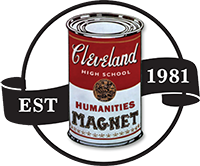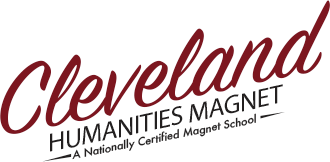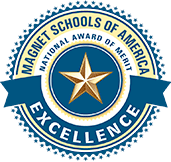Unit 2: The American Jungle: Gaining Historical Literacy to Untangle Notions of Democracy, Meritocracy and the American Dream
The purpose for this unit is to develop historical literacy in order to examine how the concept of meritocracy persists despite the social realities that are often hidden from view. The unit will begin with a series of interdisciplinary workshops based on a historical analysis of the irony of the vision for freedom as established in the Constitution, while the realities of slavery and Native American genocide occurred simultaneously. We will then explore democracy, meritocracy and the American Dream that have become a part of the American mythology. To do this, the curriculum will highlight some of the voices who were critical of the “Dream,” namely Transcendentalists like Ralph Waldo Emerson and Henry David Thoreau, and those who despite all of their efforts could not attain success, as seen in August Wilson’s Fences and Arthur Miller’s Death of a Salesman. We will conclude the unit by reading and recreating F. Scott Fitzgerald’s quintessential American novel on the unfulfilled lives of the upper class, The Great Gatsby, with our fabulous interpretation entitled “The Gatsby Dinner Party.”
Native American History Workshop
This workshop will begin with a brief look at Native American history before Europeans arrived. Next, it will move to the meeting of Native Americans and Europeans in North America and the immediate consequences of the colonization of North America. After the settlement of Jamestown there would be nearly three centuries of warfare across the continent between Native Americans and European Americans. This was followed by the creation of reservations and attempts to assimilate Native Americans.
Native American Literature Workshop
Coupling with the Native American History Workshop, students will read excerpts from Indigenous writers that give voice to the current realities of Native American life, exploring how the past treatment of Native Americans coincides with the issues of today.
African American History Workshop
During the African American History workshop, we will explore “the Great Irony” of establishing democracy, while solidifying slavery. At a time of hope and optimism about the kind of nation that could be built here in the “New World,” one of freedom and equality, we enslaved millions of Africans for over two hundred years, which requires the examination of a painful, yet important part of our nation’s history. We will read Lorraine Hansberry’s The Drinking Gourd and compare images from Gone with the Wind to the images of Hansberry’s work.
African American Art Workshop
The African American Art workshop begins with a study of Romare Bearden’s work, that documented and celebrated Black life during the Harlem Renaissance. Then, we move to a study of Kara Walker’s art of paper cutting, where she uses silhouettes to create chilling scenes of slave life, leaving viewers with a very different feeling from that of Bearden’s work.
American Dream History Workshop
This workshop is the historical foundation for the tangled relationship between the “American Dream” and meritocracy. Our examination of “success” in American culture begins with the construction of the Constitution, including an analysis of the men that spearheaded the creation and implementation of this document. While Benjamin Franklin laid the foundation for the “self made man” ideology, it was the Industrial Revolution and resulting economic boom that really set the wheels in motion of the pursuit of the elusive dream. Authors, clergymen, and statesmen alike published and preached with adamant fervor the promise of success through hard work. While this message seemed promising, the reality was clear: the unequal distribution of wealth in this country was creating a vast disparity between those that had access to resources and those that did not.
Transcendental Philosophy Workshop
Important to the discussion of the American founding are those voices who challenged the corruption inherent in the material pursuit of the American Dream and who sought to remind Americans of the ideals of democracy. We will explore the philosophy of Transcendentalism, a protest philosophy in the mid 1800’s that brought about an American Renaissance in art, literature, and politics, impacting generations thereafter.
Performance Art Workshop
In this workshop, students learn about how America’s ideals of democratic freedom and equality attracted masses of European immigrants to the emerging metropolises of the Industrial North. The expectation was a place of opportunity where everyone had the chance to become wealthy. By 1920 more than half of America’s population lived in cities. However, as a result of over-population and the exploitation of the immigrants, living and working conditions for them them became oppressive. Two major social reformers exposed the corruption and exploitation of vulnerable immigrants, Upton Sinclair and Jacob Riis. Through an analysis of Sinclair’s The Jungle, and Riis’ photojournalism, students will write and perform plays chronicling the daily life of European immigrants living in Chicago and New York at the turn of the century.
Literature Workshop
In this workshop we will examine themes directly connected to aspects of class: meritocracy and the American Dream. In order to explore these themes, we will read two thought provoking American dramas, Arthur Miller’s Death of a Salesman and August Wilson’s Fences.The American Dream asserts that any striver can walk in with a “smile and a shoeshine”, put in hard work, and go home rich. Through universal father/son, husband/wife and, family relationships, both Miller and Wilson provide us with a scathing commentary on the pursuit of the American Dream. It is this dream that drives the actions of our two main characters of focus, Willy and Troy; however, their social realities ultimately get in the way of their possible success.
Gatsby Workshop
We conclude this unit with a third interdisciplinary workshop rotation by reading F. Scott Fitzgerald’s quintessential American novel on the unfulfilled lives of the upper class, The Great Gatsby. Simultaneously, students will create an original interpretation of both the novel and the art of Judy Chicago, entitled The Great Gatsby Dinner Party, an evening of food, art, and theater.


